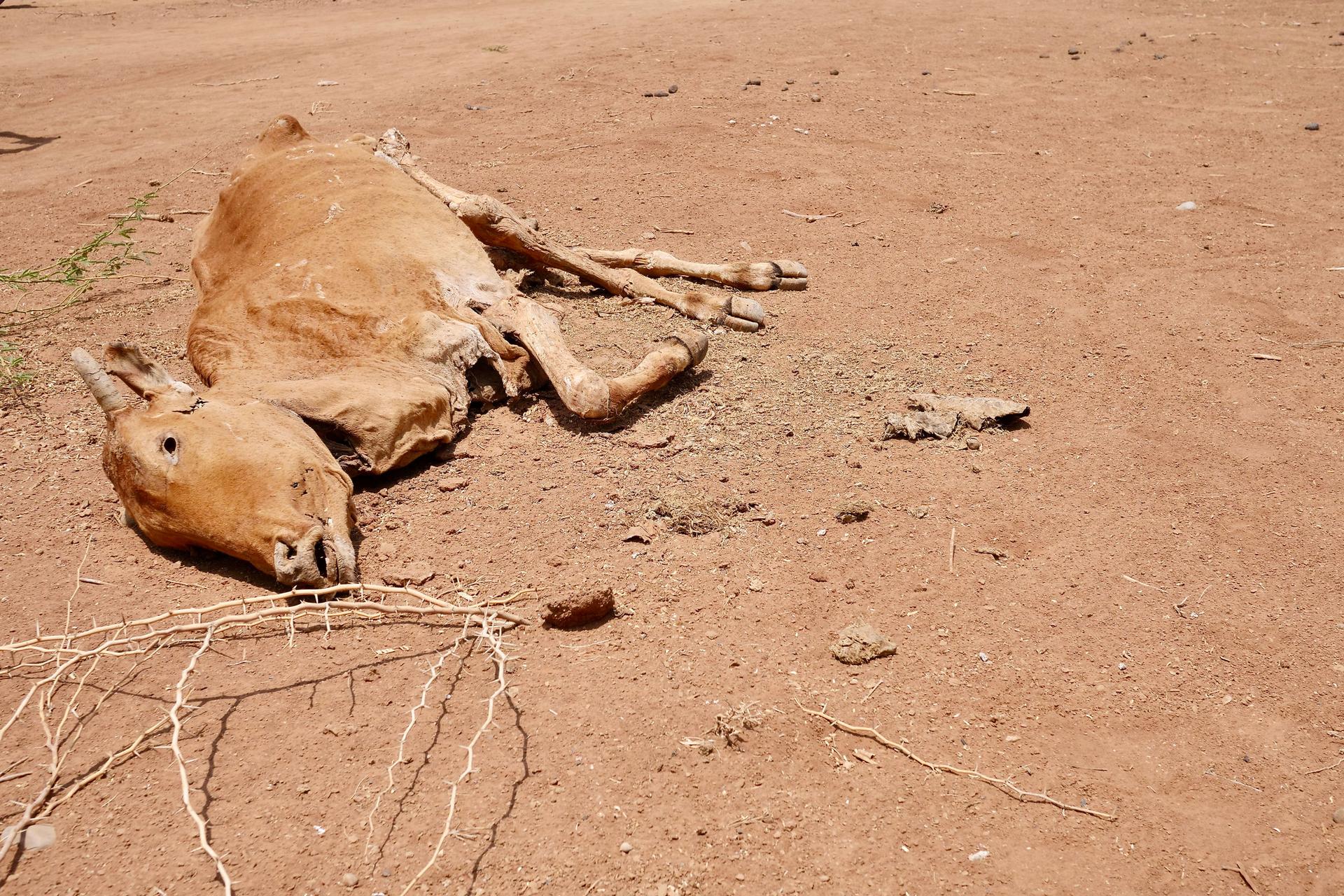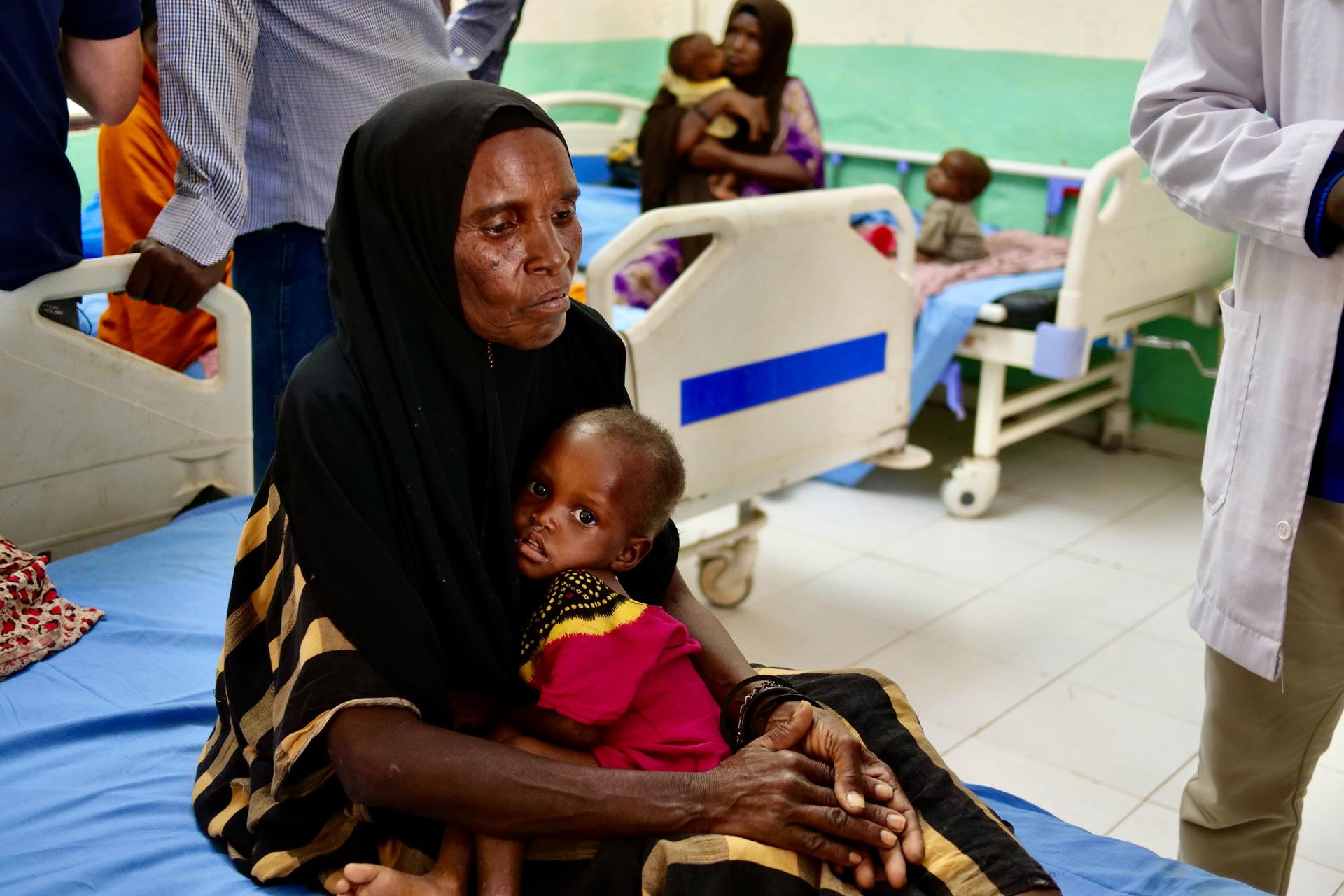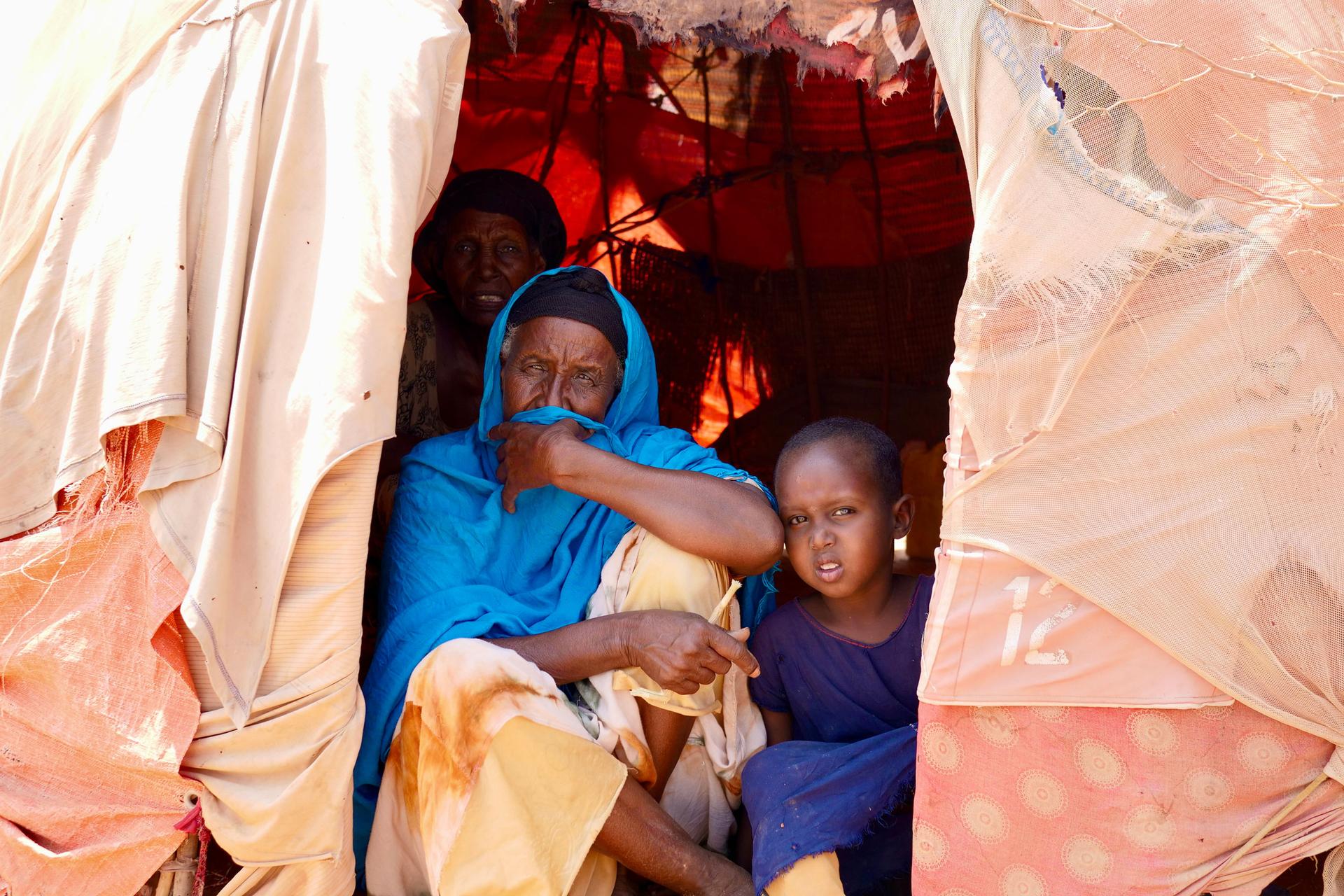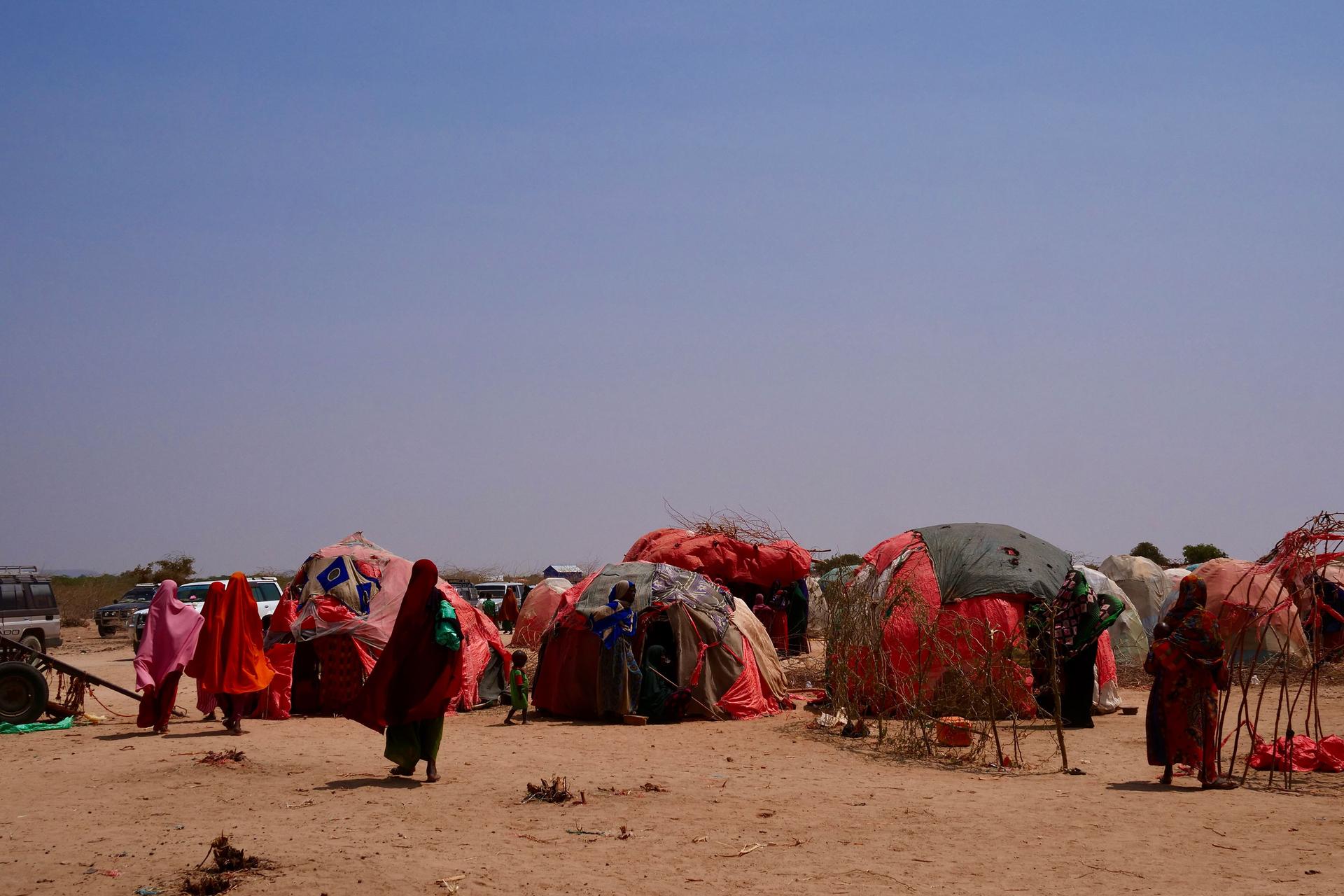Aday Ibrahim Wedhow and her family traveled for days in search of water and food amid the worst drought to hit Somalia in more than 40 years.
When they arrived at a camp for internally displaced people on the outskirts of Luuq town, in southern Somalia, they realized they would not be much better off.
“We haven’t gotten any assistance here,” Wedhow said.
Carcasses of dead livestock rot in 100 degree Fahrenheit weather. The nearby river that surrounds the town has nearly dried up.
More than half-a-million people in Somalia have left their homes due to lack of food and water – ending up at camps for internally displaced people across the country.
Related: Climate change may be the leading driver of tomorrow’s refugee crisis
The United Nations is warning that a famine looms in Somalia’s future. The country has not seen rain for the past three consecutive rainy seasons over a two-year period.
Rain is expected this month but experts say the projected rainfall won’t be nearly enough to end the drought.
“We search for help after our livestock die. … Everyone is leaving their homes because of the drought. … I’m desperate.”
“We search for help after our livestock die,” Wedhow said. “Everyone is leaving their homes because of the drought. … I’m desperate,” she said while holding her two young children.
Their hair has begun to turn yellow — a sign of malnourishment.
Related: New IPCC report says climate change poses an extreme risk to billions of people

For the many displaced people who have traveled across barren terrain by foot for days or weeks, if not longer, their health conditions are dire.
“Majority of them come with the children very malnourished. The mothers, very malnourished, as well,” said Fatuma Mohamed, who works with the Irish nongovernmental organization Trócaire.
“I remember, recently, a mother who had walked all the way from El Wak [area] to the IDP center, which is near the town. As soon as she arrived, the poor mother passed on. Her child was still breastfeeding her.”
“I remember, recently, a mother who had walked all the way from El Wak [area] to the IDP center, which is near the town. As soon as she arrived, the poor mother passed on. Her child was still breastfeeding her,” Mohamed said.
Many people on the move are pastoralists whose livestock — on which they depend for milk, meat and income — have all perished.
“Those are the type of people you know who when they arrive, they need all kinds of assistance,” Mohamed said. “Unfortunately, the speed at which assistance has been coming has been slower.”
Related: Desalination brings fresh water — and concern — to an Indigenous village in northern Mexico
Funding has been stretched thin across camps, villages and hospitals.
At a hospital in Luuq town, the malnutrition ward was full of sick children and their guardians receiving health care.
Barow Hassan held her 2-year-old granddaughter. Both appeared thin and weak.
“She became malnourished because of the lack of food in our village,” Hassan said, referring to the child.
This isn’t her first experience with drought, but she said this time, she noticed it’s more severe.

“This [drought] is prolonged. It’s killed everything. … Now it’s about the survival of human beings.”
“This one is prolonged. It’s killed everything,” she said. “Now it’s about the survival of human beings.”
Related: Seemingly small shifts in global temperatures have huge consequences for the planet
The United Nations is seeking nearly $1.5 billion to provide humanitarian aid for the millions of people impacted by the drought. So far, they’ve received less than 4%
For Daruuro Hassan, the assistance is too late.
At the IDP camp in Luuq, she sat inside her makeshift temporary home, made of wood, plastic and clothes.
“I lost three children on the way here,” she said.
That was five months ago. Now, she and her remaining family still struggle to find food.
“I’m very hungry, my last meal was yesterday.”

“I’m very hungry, my last meal was yesterday,” she said.
She said she collects firewood and sells it at the local market to make a little money for meals – which might be only a cup of tea.
Her older children have gone to the town center to find work as shoe shiners.
The story you just read is accessible and free to all because thousands of listeners and readers contribute to our nonprofit newsroom. We go deep to bring you the human-centered international reporting that you know you can trust. To do this work and to do it well, we rely on the support of our listeners. If you appreciated our coverage this year, if there was a story that made you pause or a song that moved you, would you consider making a gift to sustain our work through 2024 and beyond?
